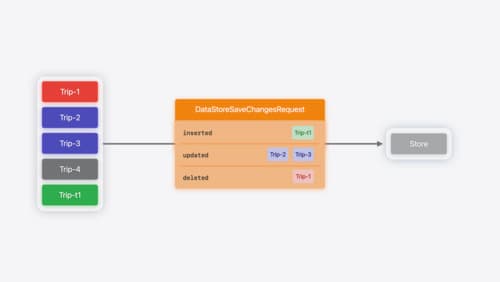can I use core data or similar on linux?
Asked on 2024-08-03
1 search
Yes, you can use Core Data or similar on Linux by leveraging Swift Data with custom data stores. Swift Data allows you to define your schema and persist your app's information using a lightweight API. By default, Swift Data uses Core Data to store information, but it also supports custom data stores, enabling you to use alternative backends like SQLite, a remote web service, or even a collection of JSON files.
For more details, you can refer to the session Create a custom data store with SwiftData which explains how to implement support for any persistence backend using the new datastore protocol.
Relevant Sessions

What’s new in SwiftData
SwiftData makes it easy to add persistence to your app with its expressive, declarative API. Learn about refinements to SwiftData, including compound uniqueness constraints, faster queries with #Index, queries in Xcode previews, and rich predicate expressions. Join us to explore how you can use all of these features to express richer models and improve performance in your app. To discover how to build a custom data store or use the history API in SwiftData, watch “Create a custom data store with SwiftData” and “Track model changes with SwiftData history”.

Create a custom data store with SwiftData
Combine the power of SwiftData’s expressive, declarative modeling API with your own persistence backend. Learn how to build a custom data store and explore how to progressively add persistence features in your app. To get the most out of this session, watch “Meet SwiftData” and “Model your schema with SwiftData” from WWDC23.

Platforms State of the Union
Discover the newest advancements on Apple platforms.
